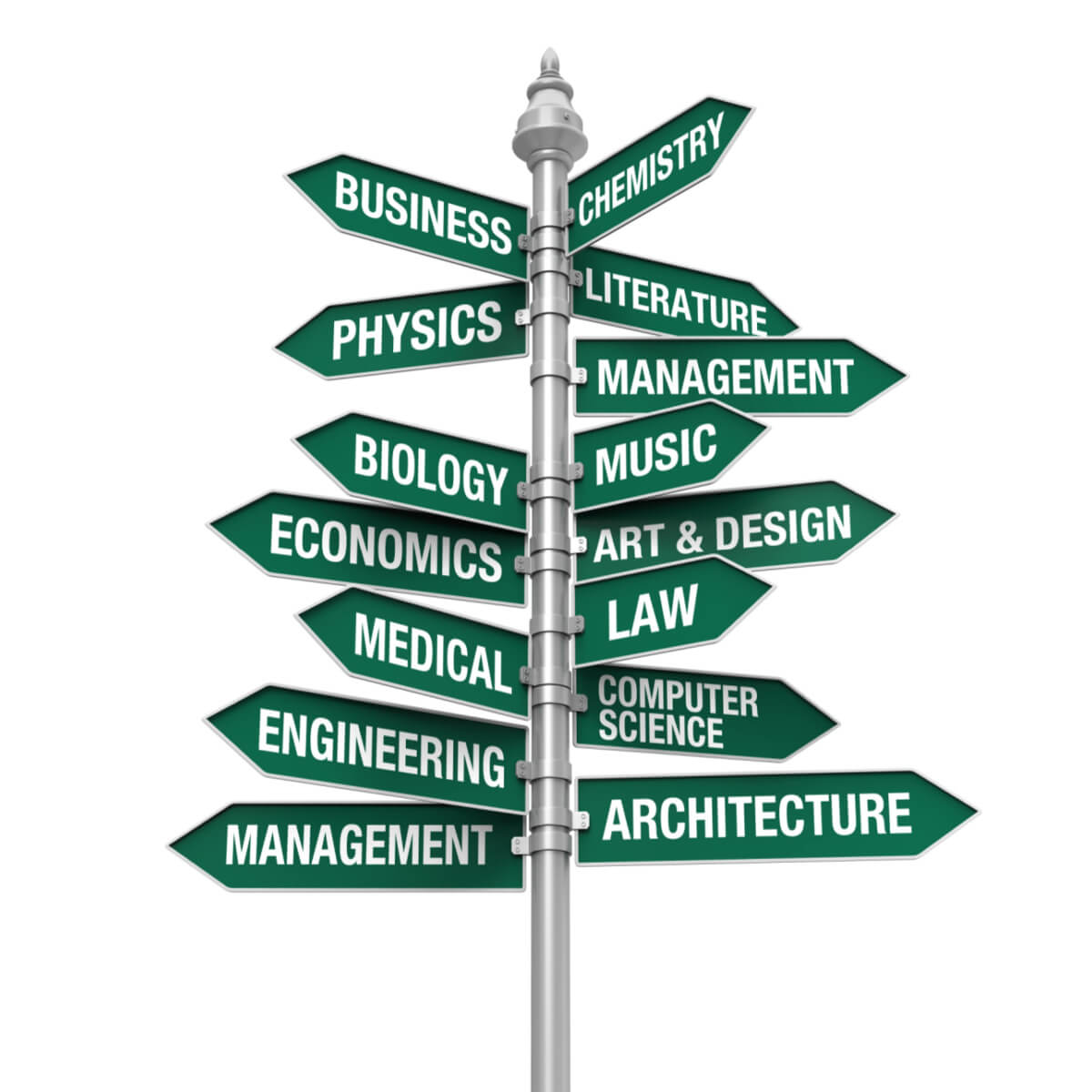
Is your school leaver unsure of what they want to do? Careers expert Helen Green offers great advice on why it can be a good idea to take a broad course that fits their interests.
An occupation specific degree continues to be a terrific option for students clear on their preferred pathway. But what about secondary students with multiple interests or those who know they want to study something related to health or design for example, but do not know specifically what? Or those who miss out on entry into their chosen profession straight from school?
When I finished school at 17, I knew I wanted to go to university but apart from enjoying writing and humanities subjects, I was clueless. It is not surprising many students leave secondary school unclear what they want to ‘be’. Can we really expect young people to know what career they want to pursue at 17, particularly when they have spent the previous few years being educated remotely and unable, for the most part, to attend university campuses?
As parents and educators, we should remind these students that it is perfectly fine, indeed sometimes advantageous, to take a course aligned with a student’s broad interest area(s) fostering curiosity, academic skills, critical thinking, and self-awareness.
Preparing students for the Careers of the Future – employability skills matter
Research tells us that youth today are expected to have five or six careers, with work increasingly inter-disciplinary. It is estimated 50 per cent of the jobs young people today will be working in have not been invented yet, especially in STEM fields. This is reflected in the many new and exciting study combinations available now that we’d have not seen 10 years ago.
Employability skills matter and will hold them in good stead throughout their career. These skills will be transferable across sectors and are not necessarily occupation focused, for instance problem solving, teamwork and communication skills, creative thinking, data literacy, a curious mindset, adaptability and importantly – self management.
Why consider a broad-based approach
Benefits include:
Flexibility and Choice. Students can explore a vast array of interests beyond what’s available at school and with carefully chosen majors, can focus on a specific career path if they choose. Options broaden further with a double degree where students can harness strategic major/minor combinations boosting their employability options.
Maturity and self-awareness. A few examples. A former year 12 client was interested in the health sector and curious about several allied health occupations, yet our conversations also revealed other interests including medical research, design, and the environment. She completed a science degree and attended a few guest lectures related to ecology, followed up by an internship. She now works in the sector and is completing a short postgraduate course in environmental business management. Another student was interested in literacy, journalism, psychology, and sociology. Enrolling in a Bachelor of Arts, she studied a linguistic unit in first year and ended up majoring in both linguistics and psychology. During her time studying and working part time at a multidisciplinary health clinic, she discovered speech pathology and went on to study a two-year graduate degree in speech pathology.
Professional endorsement Many major sequences are professionally accredited with an industry body or provide a pathway to accreditation. This is important as it is sometimes incorrectly assumed that broad degrees provide limited professional options.
Platform to professional graduate entry degrees allowing students time to be clearer on their pathway. Graduate professional degrees are also a second chance for some students to study in a highly competitive discipline they may have missed out on straight from school. Examples include Juris Doctor (law) and a Master of Physiotherapy Practice. I have seen many students exceed their own expectations in graduate professional degrees as they are typically more mature and have an excellent foundation of academic and research skills after completing an undergraduate degree.

Compare courses
Don’t assume general degrees or double degree combinations are all the same. Compare tertiary courses starting with majors and minors offered, opportunities for work integrated learning, fees, duration, teaching format and so on link to Open Day updated article.
Be curious. University study is about far more than occupational outcomes. Explore subjects and disciplines that interest you. Learn about yourself and your place in the world.
As you progress in your degree, do keep in mind that certain major sequences or subject groupings can lead to accreditation with a professional body or entry into a graduate program. Be engaged and take full advantage of the many careers events, internships and work integrated learning opportunities available to students.
Explore opportunities to take units outside your faculty or university if permitted.
RELATED ARTICLE: HOW TO MAKE THE MOST OF UNI OPEN DAYSHowever, do keep in mind...
Before enrolling in a broad-based degree, remember there are some occupation focused degrees that allow you to try specialisations in first year before committing to a professional stream. Engineering just one example. These degrees are occupation specific and a terrific option for students who know they want to be an engineer, for example, but need time to explore their options within engineering before specialising.
If you plan to study a broad-based undergraduate degree with the intention of choosing a professional graduate degree, factor in that it will take you longer to study than if you entered the course directly from school and as such, you are likely to incur higher fees.
Many but not all graduate degrees offer Commonwealth supported places. On the plus side, you may be better placed to succeed with the benefit of clarity, study skills and further work/life exposure.
Double degrees are increasingly popular for a myriad of excellent reasons, and I encourage students to explore the many terrific combinations available. Do keep in mind that double degrees are not for every student. Students should think carefully about their degree combination and be guided by their interests and strengths. In my experience, students taking a double degree when they have minimal interest in the second discipline can be counterproductive. They often feel they have missed out on the opportunity to immerse themselves in two majors and make the most of electives on offer in a single degree.
Like this post? Please share using the buttons on this page.
About Helen Green
Helen is a qualified careers practitioner, writer, and professional member of the Career Development Association of Australia. She has over two decades’ experience working in senior education and career program management roles, particularly within the tertiary sector where she has assisted many students. She now runs her own careers consulting practice in the south-east suburbs of Melbourne, Career Confident where she helps many secondary and tertiary students and adults. She has two children at university.
Stay up to date with our newsletter here

